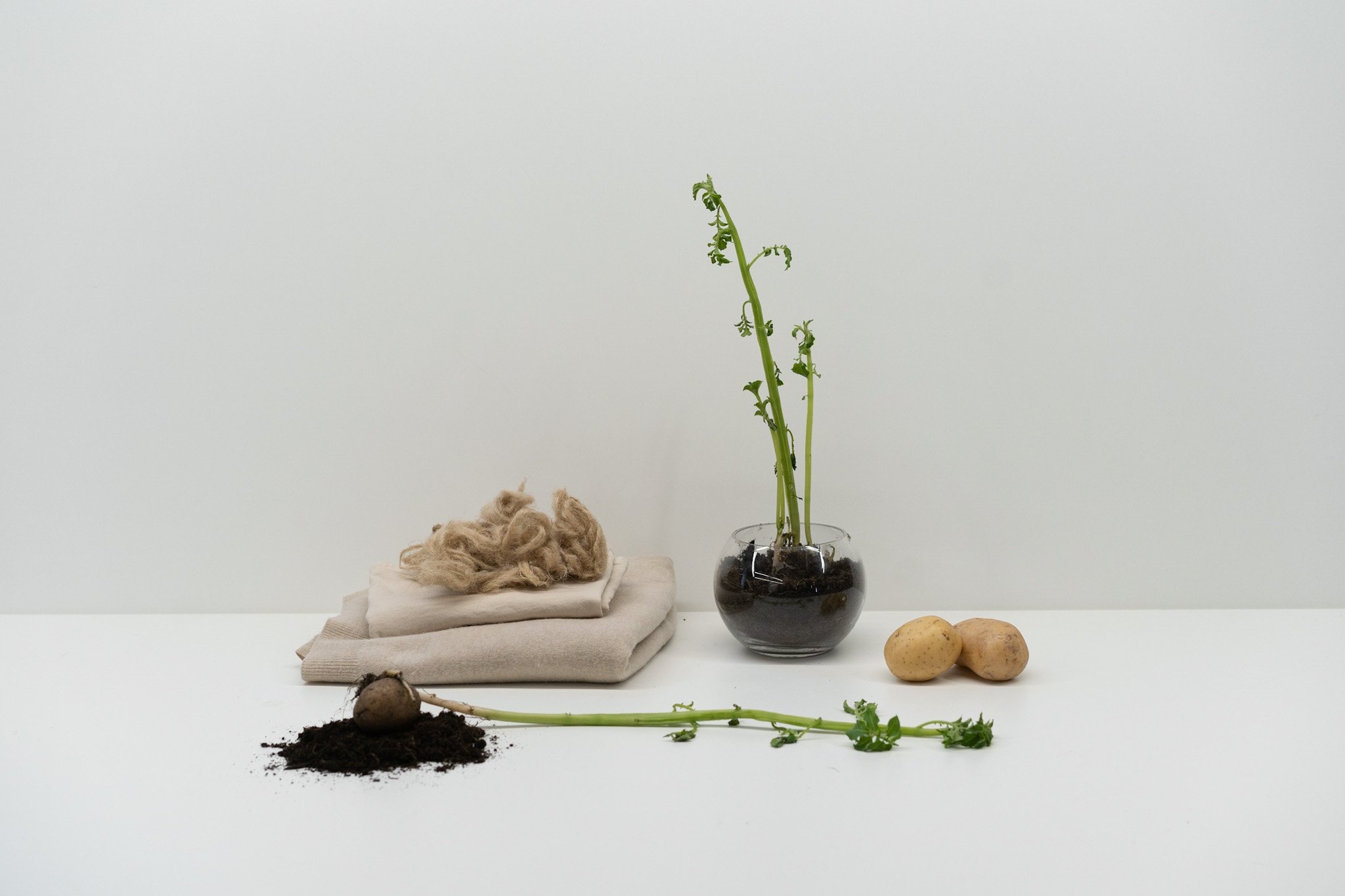Can Potato Waste Be the Future of Fashion? Introducing Patacel
The total consumption and production of textiles must decrease if we are to address the pressing environmental challenges of our time. The fast fashion industry is notorious for producing garments with poor quality and short lifespans, contributing to waste and overconsumption. While reducing our overall clothing output is essential, there may still be a need for small-scale, locally owned production. The challenge, however, lies in sourcing sustainable materials that meet both environmental and economic demands.
Innovative materials often require scalable solutions to succeed in the mainstream market. But what if we could solve multiple problems at once? One of the latest materials making waves in the innovation scene is Patacel, a fibre made from potato waste, developed by UK startup Fibe. This groundbreaking material offers a solution to both the fashion industry’s sustainability problems and the issue of food waste.
Currently, around 150 million tonnes of potato waste are incinerated or discarded each year due to its unsuitability for consumption or composting. Fibe aims to transform this waste stream into a valuable resource for clothing production. The potential of Patacel is vast, with estimates suggesting it could meet 70% of global non-synthetic clothing demand.
Fibe’s process involves extracting fibres from potato waste through biological and mechanical steps, without the use of harsh chemicals. The resulting fibres are compatible with existing textile weaving machines, which makes it easier to integrate Patacel into current manufacturing systems. Even more impressive, Patacel production uses 99.7% less water and emits 82.4% fewer pollutants than cotton, without requiring additional agricultural land.
Photo: Fibe
Patacel shares many of the benefits of traditional ‘bast’ fibres like hemp and jute, such as strength, durability, and dyeability. However, it offers a softer texture due to the small diameter of its fibres, making it more suitable for everyday clothing. It also has natural antimicrobial properties thanks to solanine, a compound found in potatoes.
Fibe is still in the early stages, having secured £500,000 in government funding, but it plans to raise additional funds to expand its operations and invest in further research and development. The future of Patacel is promising, but we will follow this startup and initiative closely.
In general, we are optimistic about businesses that aim to solve environmental and resource challenges. However, it is crucial to recognise that all production requires resources, and increased production alone cannot meet the goals of the Paris Agreement or halt biodiversity loss. While no material is perfect, innovative solutions like Patacel represent a positive step toward phasing out fossil-based and resource-intensive materials such as polyester and cotton.


